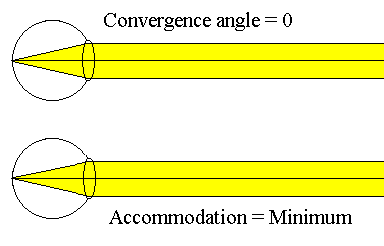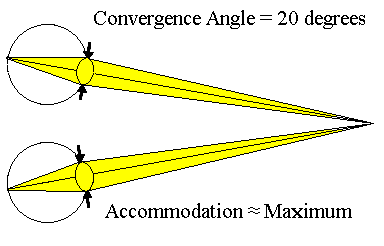

"Eyeball Control" coordinates the convergence angle between eyes and their focusing (accommodation). When you look at distant objects the convergence angle approaches zero (both eyes straight ahead) and the accomodation is near minimum. (The cornea compression muscles are most relaxed.) For close-up objects the convergence angle becomes appreciable and the accommodation approaches maximum.
Brains have the equivalents of look-up tables, generated by adaptive neural networks, that provide proper coordination of these functions. (Iris control figures in too, but is not addressed in this discussion.)
When you watch a 3-D movie or use a stereo-viewer the convergence angles between your eyes vary as a function of the original distances from the objects to the camera(s) that recorded them but the distance from your eyes to the images is fixed. When your brain employs its normally coordinated look-up tables, you get focusing commands (accomodation control) that conflict with the convergence controls. This is called an accomodation convergence conflict.
In short, and this is just my opinion, you can strip some neural gears in your head by using artificial 3-D viewing schemes, including virtual reality (VR) systems. This leads to two things. You get a headache (as the gears are stripping) and ever thereafter your look-up tables become fuzzier logic systems.